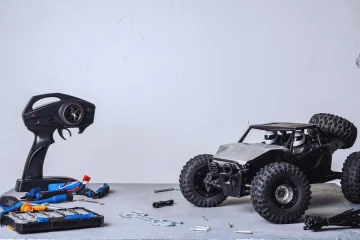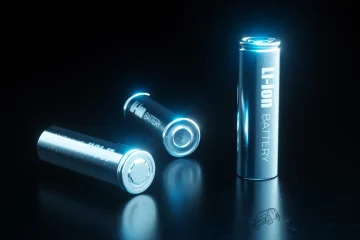Lithium ion battery leak can occur due to overheating or physical damage. This can lead to leakage of toxic chemicals and potentially cause fire or explosion.
Lithium ion batteries are widely used in electronic devices such as smartphones, laptops, and electric vehicles. The leakage of these batteries can pose serious safety hazards and environmental concerns. It is important to handle and dispose of lithium ion batteries properly to prevent leakage and minimize the risk of accidents.
We will discuss the causes of lithium ion battery leaks, the potential dangers associated with it, and how to safely handle and dispose of these batteries to prevent leakage and environmental contamination.
The Basics Of Lithium Ion Batteries
Lithium-ion batteries are an integral part of our daily lives, powering everything from smartphones to electric vehicles. These high-energy-density rechargeable batteries have revolutionized the way we use portable electronics and are increasingly being adopted for large-scale energy storage applications. Understanding the basics of lithium-ion batteries can help users make informed decisions about their usage and maintenance.
Composition Of Lithium Ion Batteries
Lithium-ion batteries consist of various components that enable the electrochemical reactions responsible for energy storage and release. These components include:
- Anode (negative electrode)
- Cathode (positive electrode)
- Separator
- Electrolyte
How Lithium Ion Batteries Work
Lithium-ion batteries operate on the principle of lithium ions moving from the anode to the cathode during discharge and from the cathode to the anode during charging. The process involves a series of chemical reactions that result in the release and storage of electrical energy.
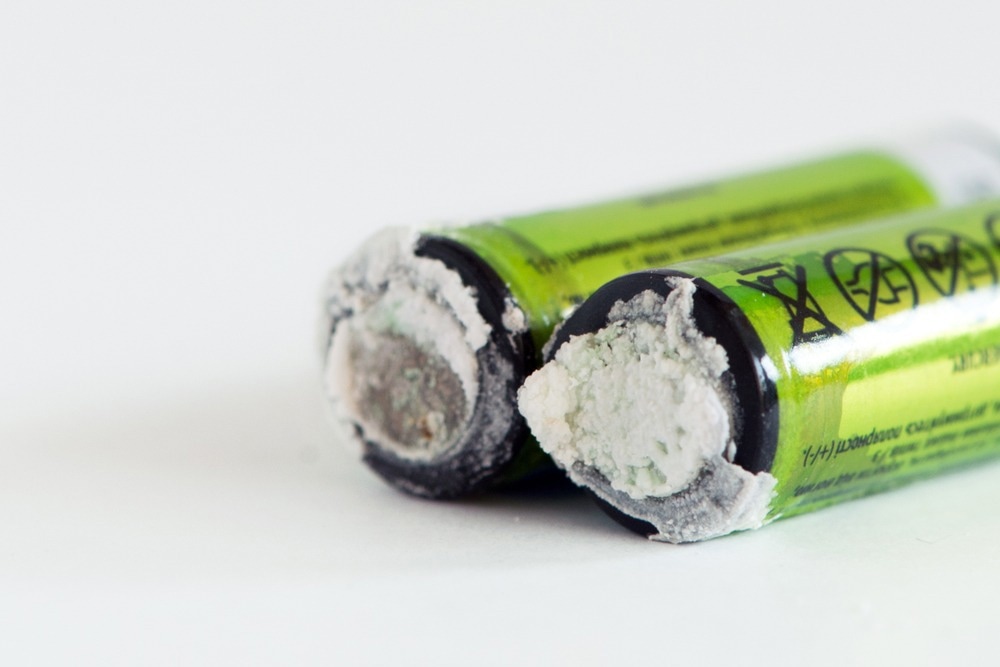
Credit: www.azosensors.com
Understanding Battery Leaks
Discover the impact of Lithium Ion Battery Leaks on performance and safety. Understanding the signs and preventive measures is vital for device longevity. Be aware of potential dangers and take proactive steps for handling battery leaks effectively.
Understanding Battery Leaks Batteries are an essential component of many everyday devices, powering everything from our smartphones to our laptops and electric vehicles. However, it’s important to be aware that these batteries can sometimes leak. In this section, we will explore the causes of lithium-ion battery leaks and the signs that indicate a battery may be leaking.Causes Of Lithium Ion Battery Leaks
Lithium-ion batteries are prone to leakage due to several potential causes. Understanding these causes can help us take necessary precautions to prevent leaks. 1. Physical Damage: – Dropping or mishandling a battery can cause physical damage to its outer casing, leading to leaks. – Any indentation or puncture can compromise the seal and allow electrolyte leakage. 2. Overcharging: – Overcharging a lithium-ion battery causes excess heat and pressure build-up, which can damage the internal components and lead to leaks. – This is why it’s crucial to use chargers specifically designed for the battery type and avoid overcharging. 3. Extreme Temperatures: – Exposure to extreme heat or cold can damage the battery, potentially leading to leakage. – High temperatures accelerate the breakdown of the internal chemicals, while extremely cold temperatures can cause the casing to contract and crack.Signs Of A Leaking Battery
Detecting a leaking battery early on is crucial for safety reasons. Here are some signs to look out for: 1. Corrosion and Discoloration: – A leaking battery often leaves behind a sticky, greasy residue. – The affected area may show signs of corrosion, such as a blue-greenish or white powdery substance. 2. Swelling: – A leaking battery might exhibit swelling or bulging. – This can indicate that the internal chemicals are reacting, leading to a breakdown of the battery’s structure. 3. Strange Odor: – A leaking lithium-ion battery may emit a distinct and often unpleasant odor. – If you notice a sour or pungent smell near a battery-operated device, it could be a sign of leakage. If you notice any of these signs, it is essential to take proper precautions and safely dispose of the leaking battery. Remember, leaking batteries can be hazardous, so always handle them with care and seek professional assistance if needed. Being aware of the causes and signs of lithium-ion battery leaks can help you ensure the safety and longevity of your devices.Risks And Dangers
Lithium-ion batteries contain a potentially hazardous combination of chemicals. When a lithium-ion battery leaks, it poses several risks and dangers, which need to be addressed with utmost caution.
Hazards Of Lithium Ion Battery Leaks
- Chemical Burns: Lithium-ion battery leaks can result in skin irritation and chemical burns if direct contact occurs.
- Fire Hazard: The electrolyte in lithium-ion batteries is highly flammable, creating a risk of fire when exposed to air or moisture.
- Explosion: Uncontrolled release of energy can lead to battery explosion, causing severe damage and potential injury.
Health And Safety Concerns
When dealing with lithium-ion battery leaks, it is crucial to prioritize safety measures and address potential health risks:
- Ventilation: Ensure proper ventilation when handling leaked lithium-ion batteries to prevent inhalation of toxic fumes.
- Skin Protection: Use protective gloves and clothing to shield skin from direct contact with leaked battery chemicals.
- Disposal: Properly dispose of damaged batteries in compliance with local regulations to minimize environmental impact.
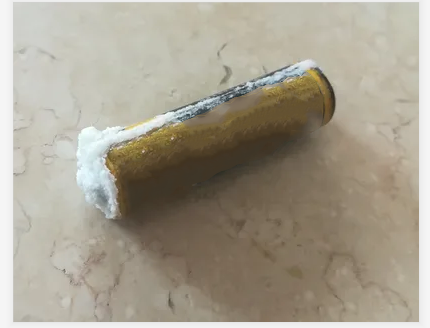
Credit: www.dnkpower.com
Protective Measures
In order to prevent lithium-ion battery leaks and ensure safety, it is crucial to follow proper protective measures. By handling batteries correctly and using appropriate protective gear, you can minimize the risk of leaks and potential hazards.
Proper Battery Handling
Proper handling is the first line of defense against lithium-ion battery leaks. Here are some guidelines to ensure that you handle batteries safely:
- Always store batteries in a cool and dry place.
- Avoid exposing batteries to extreme temperatures, both high and low.
- Inspect batteries regularly for any signs of damage or deterioration.
- Never use batteries that have been damaged or have leaked.
- Always insert batteries into devices appropriately, following the manufacturer’s instructions.
- When not in use, remove batteries from devices and store them separately.
- Dispose of used batteries properly, following local recycling guidelines.
Use Of Protective Gear
Using protective gear can provide an extra layer of safety when dealing with lithium-ion batteries. Here are some examples of protective gear that you should consider:
- Wear gloves when handling batteries to protect your hands from potential leaks or spills.
- Use safety goggles or a face shield to shield your eyes from any splashes or acidic substances.
- Consider using a lab coat or protective clothing to minimize direct contact with the battery.
- Keep a suitable fire extinguisher nearby in case of any emergencies.
By implementing these protective measures, you can significantly reduce the risk of lithium-ion battery leaks and their associated hazards. Remember, safety should always be a top priority when handling batteries.
Actions To Take In Case Of A Leak
In case of a leak from a lithium-ion battery, immediately move away and ventilate the area. Wear protective gear before attempting to clean up the spill. Contact a professional for safe disposal and follow proper safety protocols.
If you encounter a leaking lithium-ion battery, it is essential to take immediate action to prevent any potential hazards. Here are the steps you should follow:Immediate Steps To Address A Leak
- Wear protective gloves and eyewear. Do not touch the leaking battery directly.
- Move the battery to a well-ventilated outdoor area away from flammable materials.
- If there is visible leakage, place the battery in a plastic bag to contain the spill.
- Avoid inhaling fumes from the leaking battery. Stay upwind if possible.
- Do not attempt to clean the leak with water or other liquids.
Disposal Of A Leaking Battery
- Contact your local waste management facility for information on lithium-ion battery disposal.
- Clearly label the container with “Leaking Battery – Hazardous Material” before disposal.
- Do not dispose of the battery in household waste or recycling bins.
- If the leak is extensive and poses a significant risk, consider contacting professional hazardous waste services.
Preventive Strategies
Implementing preventive strategies is crucial in maintaining the longevity and safety of lithium-ion batteries. By following specific guidelines and practices, users can minimize the risk of battery leaks and associated hazards. Below are essential preventive strategies to ensure the optimal performance and safety of lithium-ion batteries.
Regular Battery Inspections
Regularly inspecting lithium-ion batteries helps in early detection of potential leaks or damages.
Avoiding Overcharging
Prevent overcharging which can lead to excessive heat generation and subsequently cause battery leaks.
Impact On Devices And Environment
Lithium-ion battery leaks can have a significant impact on both devices and the environment. These leaks can lead to device malfunctions, damage to surrounding components, and potential chemical contamination. Moreover, the toxic substances in these batteries can harm ecosystems and pose a risk to human health if not handled and disposed of properly.
Impact on Devices and Environment Lithium-ion battery leaks can have severe consequences for both devices and the environment. Understanding the impact is crucial to implementing proper measures for prevention and disposal.Device Damage From Battery Leaks
When a lithium-ion battery leaks, it can lead to corrosion and damage to the device it powers. The leakage of toxic chemicals may cause the device to malfunction or, worse, become irreparably damaged. In addition, the heat generated by the chemical reaction within the leaking battery poses a risk of fire, further endangering the device and the surrounding environment.Environmental Impact Of Improper Disposal
Improper disposal of lithium-ion batteries can have devastating effects on the environment. The toxic substances present in these batteries, such as lithium, cobalt, and nickel, can leach into the soil and water, contaminating natural resources. This not only poses a threat to wildlife and ecosystems but also risks harmful exposure to humans. When not recycled or disposed of correctly, lithium-ion batteries contribute to pollution and the release of greenhouse gases, exacerbating the global environmental crisis. In summary of the device and environmental impacts of lithium-ion battery leaks, it’s evident that proactive measures are necessary to mitigate the potential damage and preserve the health of our devices and the environment.Conclusion And Final Thoughts
The potential leakage of lithium-ion batteries should not be taken lightly, as it poses risks to both personal safety and the environment. It is imperative to handle these batteries with caution, and to dispose of them properly when their life cycle is over.
Regular checking and maintenance of devices using lithium-ion batteries is crucial to prevent leaks and potential hazards.
Emphasizing Safety First
Safety should always be a top priority when it comes to lithium-ion batteries. As we discussed earlier, these batteries have the potential to leak harmful chemicals, posing a risk to both our health and the environment. To ensure safety, it is crucial to handle these batteries with care and follow proper guidelines.
- Always use the specified charger designed for the lithium-ion battery you are using.
- Avoid exposing the battery to extreme temperatures, which can lead to leakage.
- Inspect the battery regularly for any signs of damage, such as bulging or leaking.
- If you notice any damage, dispose of the battery properly and replace it.
- When storing lithium-ion batteries, keep them in a cool and dry place, away from direct sunlight.
By following these safety measures, you can minimize the risk of leakage and ensure the longevity of your batteries.
The Future Of Battery Technology
The development of battery technology is an exciting area of research and innovation. While lithium-ion batteries are currently widely used, scientists and engineers are continuously working on improving battery technology to make it safer, more efficient, and environmentally friendly. Here are some potential advancements we can expect in the future:
- Solid-state batteries: These batteries use solid electrolytes instead of liquid, which eliminates the risk of leakage and increases energy density.
- Graphene-based batteries: Graphene, a single layer of carbon atoms, has shown promising properties for high-performance batteries that can charge faster and have a longer lifespan.
- Lithium-sulfur batteries: These batteries have the potential for higher energy density and are considered a more sustainable alternative to lithium-ion batteries.
- Flow batteries: Flow batteries store energy in liquid electrolytes, allowing for easy scalability and longer lifespan.
With advancements like these, the future of battery technology looks bright, promising safer and more efficient energy storage solutions.
Credit: www.reddit.com
Frequently Asked Questions
Is A Lithium Battery Leak Toxic?
Yes, a lithium battery leak can be toxic due to the harmful chemicals it contains. It is essential to handle and dispose of them properly to prevent environmental and health risks.
What Happens When A Lithium-ion Battery Is Punctured?
Puncturing a lithium-ion battery can lead to a short circuit, overheating, and potential fire risk.
What To Do If A Battery Leaks On You?
If a battery leaks on you, immediately wash the affected area with soap and water. Seek medical attention if skin irritation occurs. Avoid direct contact with leaking battery acid. Dispose of the battery properly. Always handle batteries carefully to prevent leaks.
What Should You Place In A Plastic Bag With A Leaking Lithium Battery?
Place a leaking lithium battery in a plastic bag for safety measures.
Conclusion
Addressing lithium-ion battery leaks is crucial for safety and environmental protection. By understanding the causes and potential hazards, we can take proactive measures to prevent leaks. Prioritizing proper usage and disposal can mitigate risks and promote sustainable energy storage solutions in the long term.

